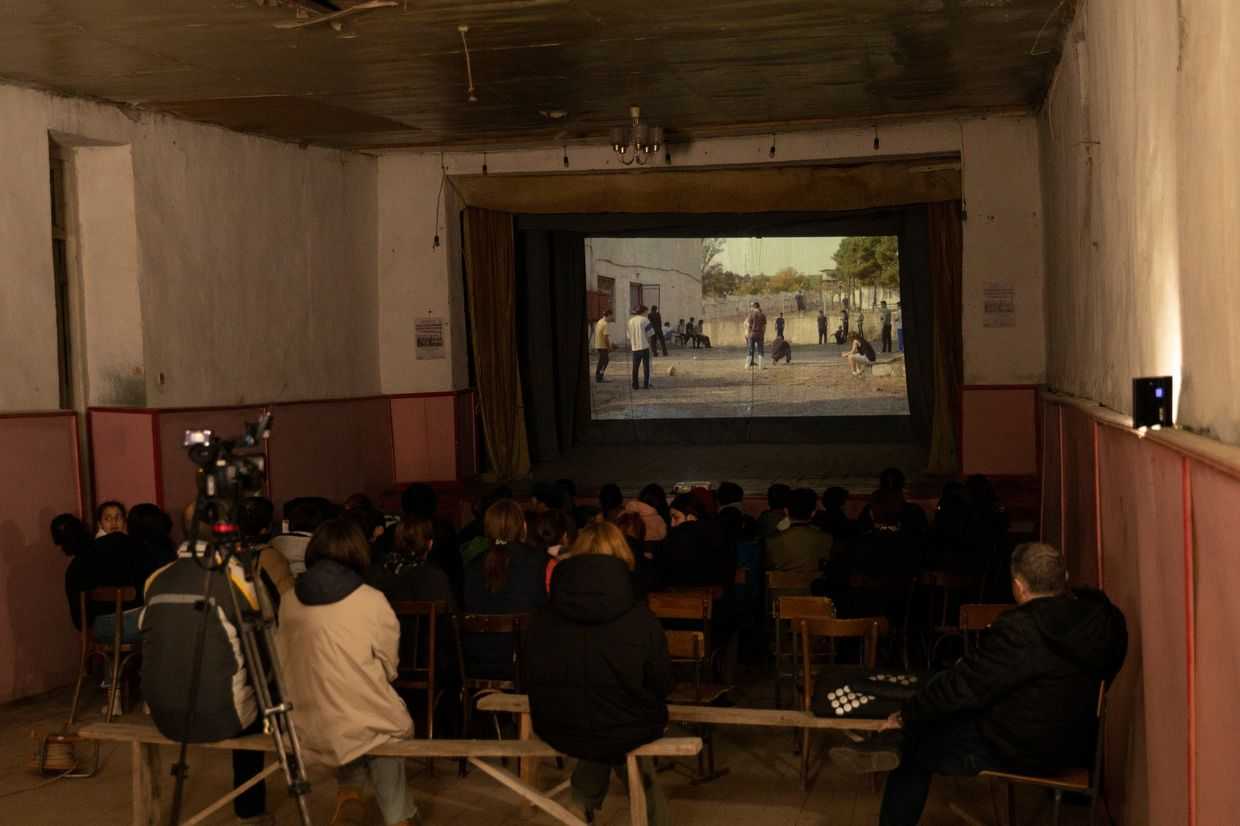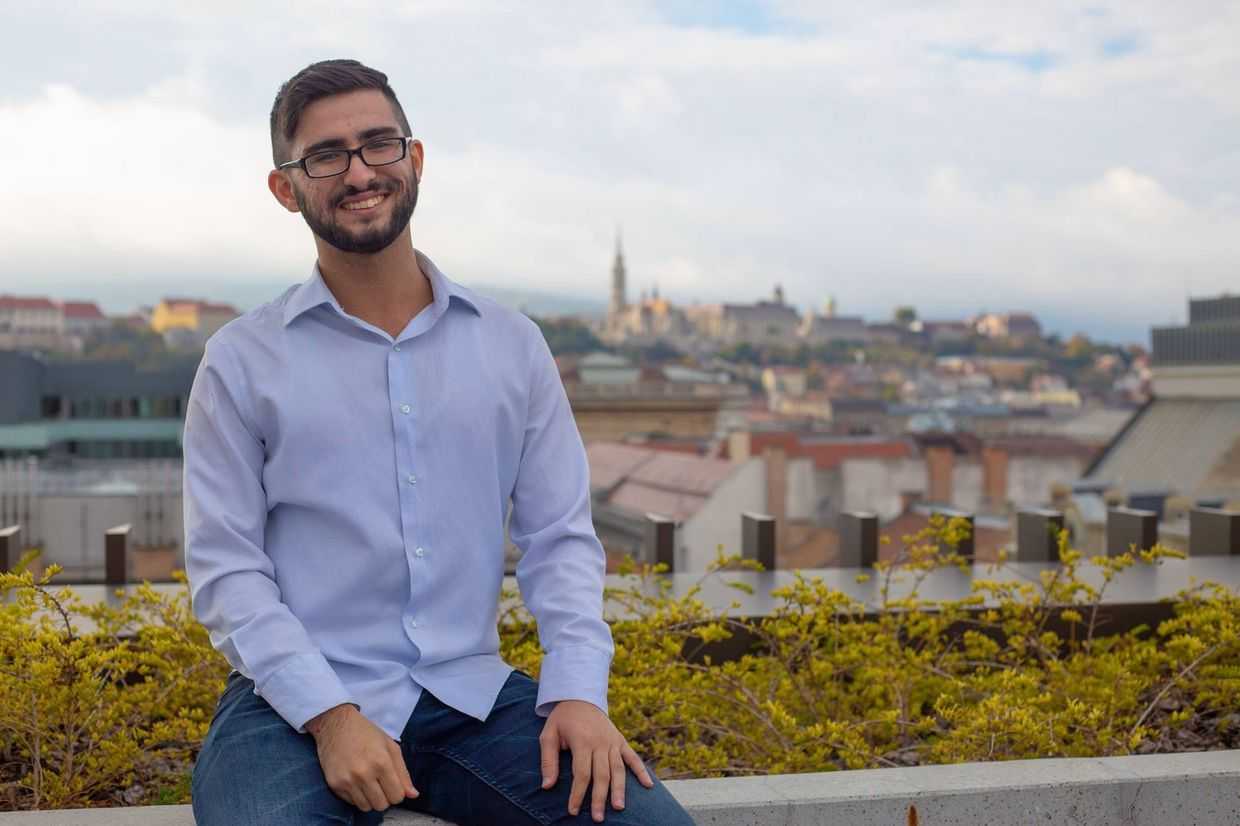
As Georgia’s political divides widen and the threat of censorship looms large, the country’s stand-up scene is providing a space for debate, but may now be in the firing line.
‘So, why aren’t you at the protest?’, asks the voice on the main stage at a bar near Tbilisi’s central Rustaveli Avenue. The awkward chuckles of the audience at the open mic night mingle with the sounds of protesters a few streets away.
A protest march against the adoption of the ‘Russian’ or ‘foreign agent’ law attended by tens of thousands was at that moment winding through the streets of Tbilisi, as the audience settled in for a night of political commentary and punchlines.
On 26 May, Georgia’s Independence Day, the political criticism is particularly pointed; something the audience seems not to mind.
‘A horse and a politician enter the parliament building’, begins one comedian, referring to a march featuring horses that took place on Rustaveli Avenue on the Georgian Orthodox Church-led and ruling party-endorsed ‘Family Purity Day’ on 17 May.
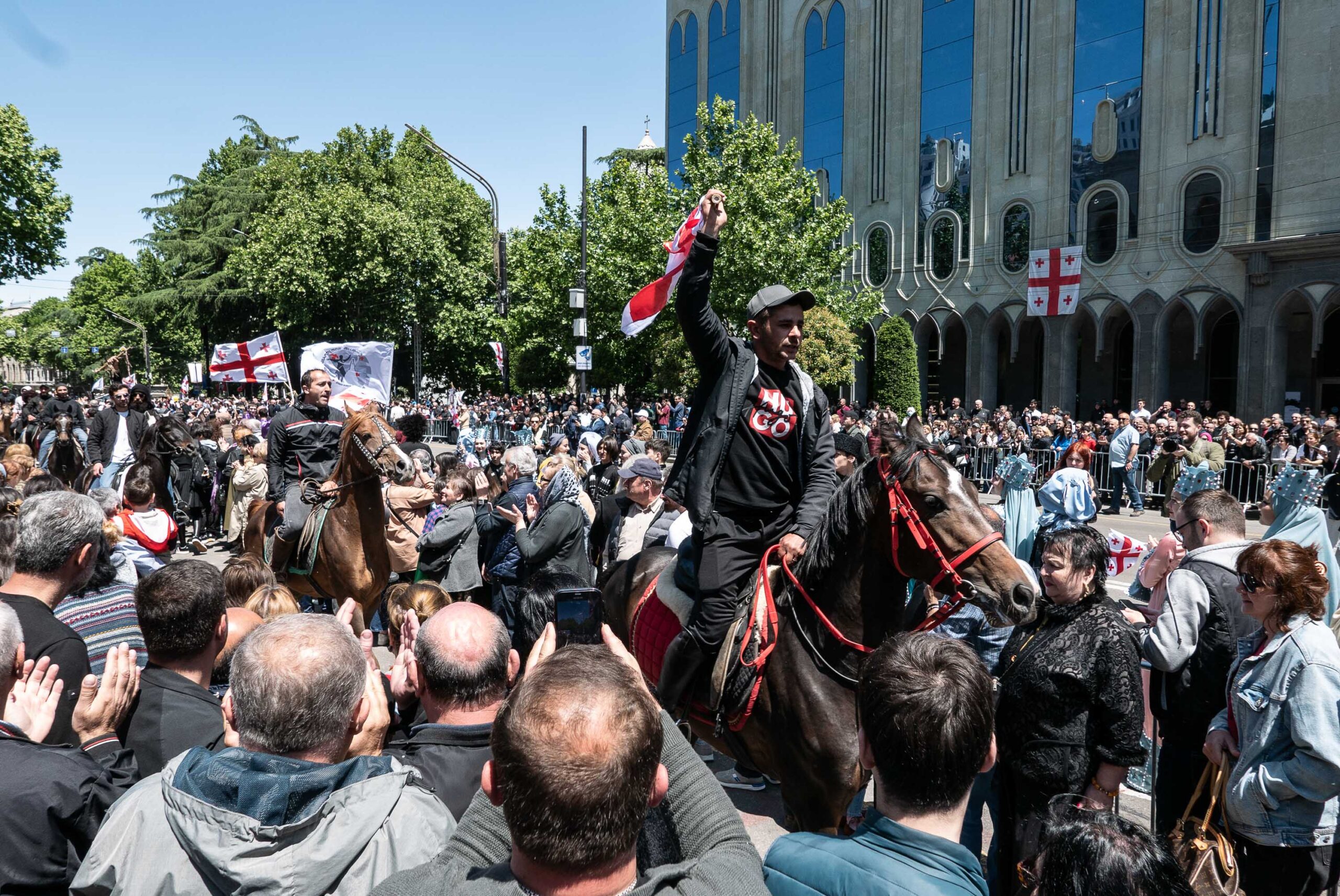
Another suggests that while she doesn’t know what the audience does with their free time, ‘we will find out soon, once the law is enforced’. Bittersweet laughter greets the reference to the recent announcement that the foreign agent law will allow government agencies to obtain information about the private lives of individuals.
‘The inspiration for stand-up comes from your everyday life. [And] in the last two years in particular, our everyday lives have become very political’, says Onise Okriashvili, a 26-year-old comedian from Stand Up Tbilisi, one of the most popular stand-up comedy communities in Georgia.
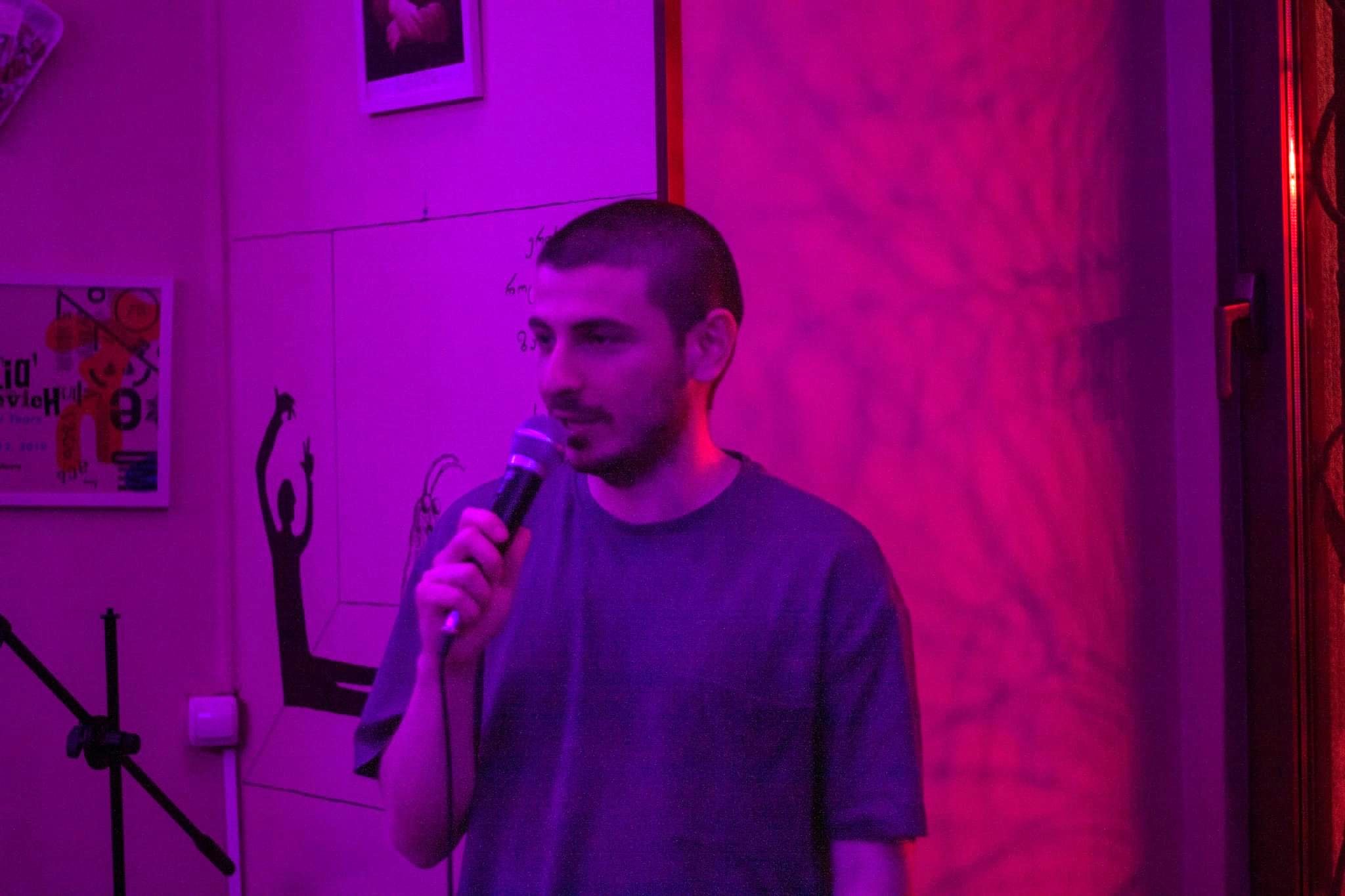
‘Everyone is fixated on the Russian [foreign agent] law. It has a significant impact on stand-up’, adds Okriashvili. ‘In the last year, my material became particularly political because I am deeply affected by everything that is happening right now, and it spills into my comedy involuntarily.’
Comedy has become an important tool for Okriashvili and fellow comedians in an increasingly tense and unpredictable political context, allowing them to discuss and re-evaluate the political situation the country has found itself in.
It also provides a context in which firmly drawn positions can be questioned; a space for nuance and grey areas in a landscape where both appear increasingly rare, as well as a way to share and exchange information.
Many of the comedians taking part see their work as not just entertainment, but a tool to challenge power and effect change; perhaps bringing the house down in more ways than one.
The power of humour
‘Humour is a political weapon, a weapon to tell the truth’, says Beka Korshia, a journalist and author of satirical TV stories that have gained huge popularity in recent years. Korshia says his show on the opposition-leaning TV station Mtavari Arkhi allowed some of his audience to develop an interest in politics, because they enjoyed the humour.
‘In such cases, humour penetrates politics into people’s minds’, he says.
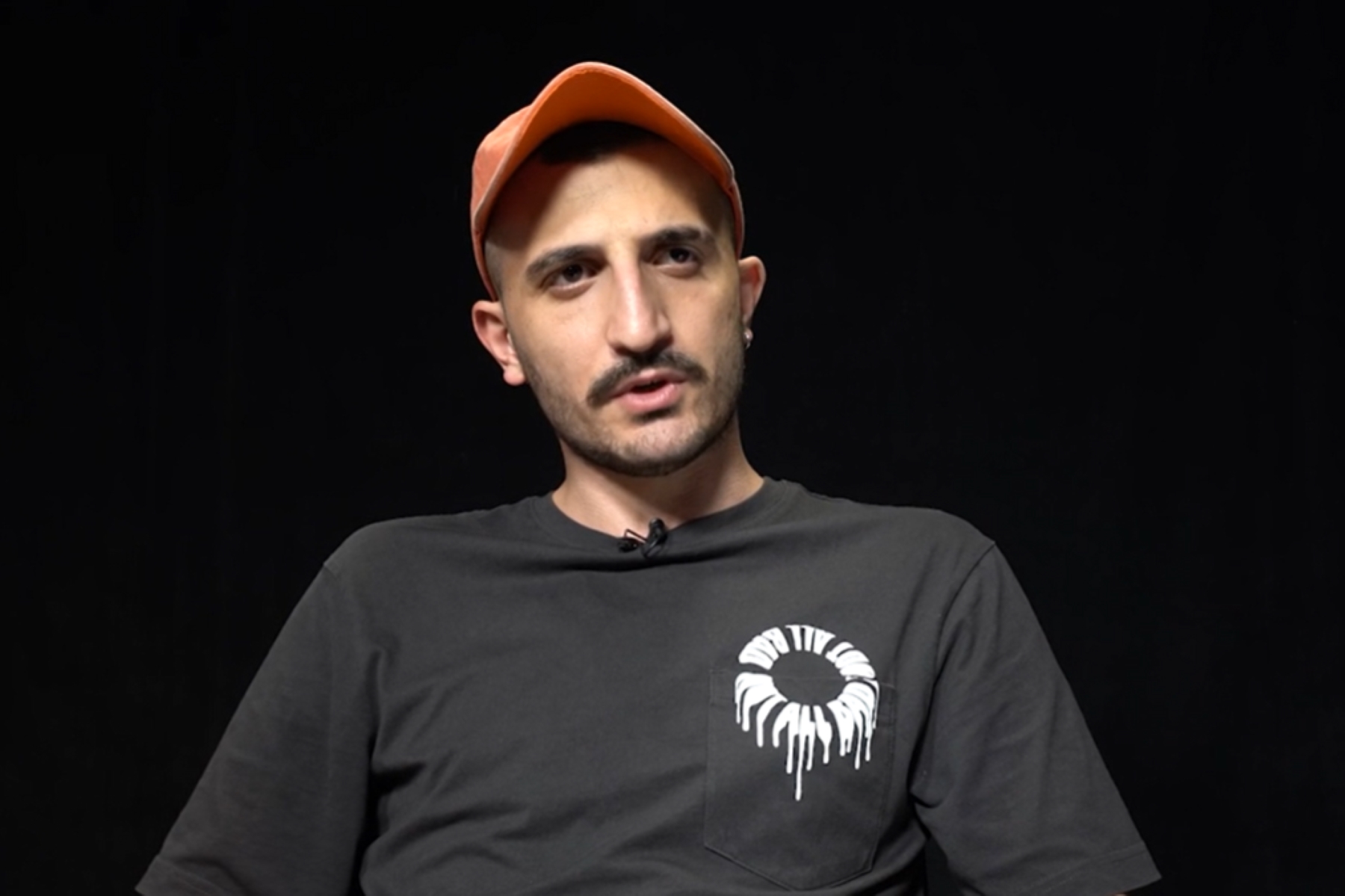
Nika Grigolia, who has been involved in Georgian comedy since the 1990s, agrees.
‘If you tell people there’s a gathering where political topics will be discussed, even with some jokes, it might not interest many. But if you say that comedians are gathering and will talk about everything including political issues, people are more likely to listen and understand than they would through many news outlets.’
‘A comedian might say just two sentences, but in those two sentences, they express their stance, show what the audience thinks, and reflect the opinions of many. In two jokes, they can showcase the sentiments of the entire country’, says Grigolia.
‘When you respond to violence with humour, consider that the oppressor has failed to achieve their goal’, adds Korshia.
He recalls how during the foreign agent law protests of spring 2024, many who had been vocally and visibly protesting the law received threatening phone calls demanding that they stop their activism. One was YouTuber George Makharashvili, who recorded himself receiving such a call and mocking the caller.
‘Other people […] saw this video and realised that there’s nothing really scary about it’, says Korshia. ‘The system itself is frightened and if you mock it, it immediately begins to crumble before your eyes.’
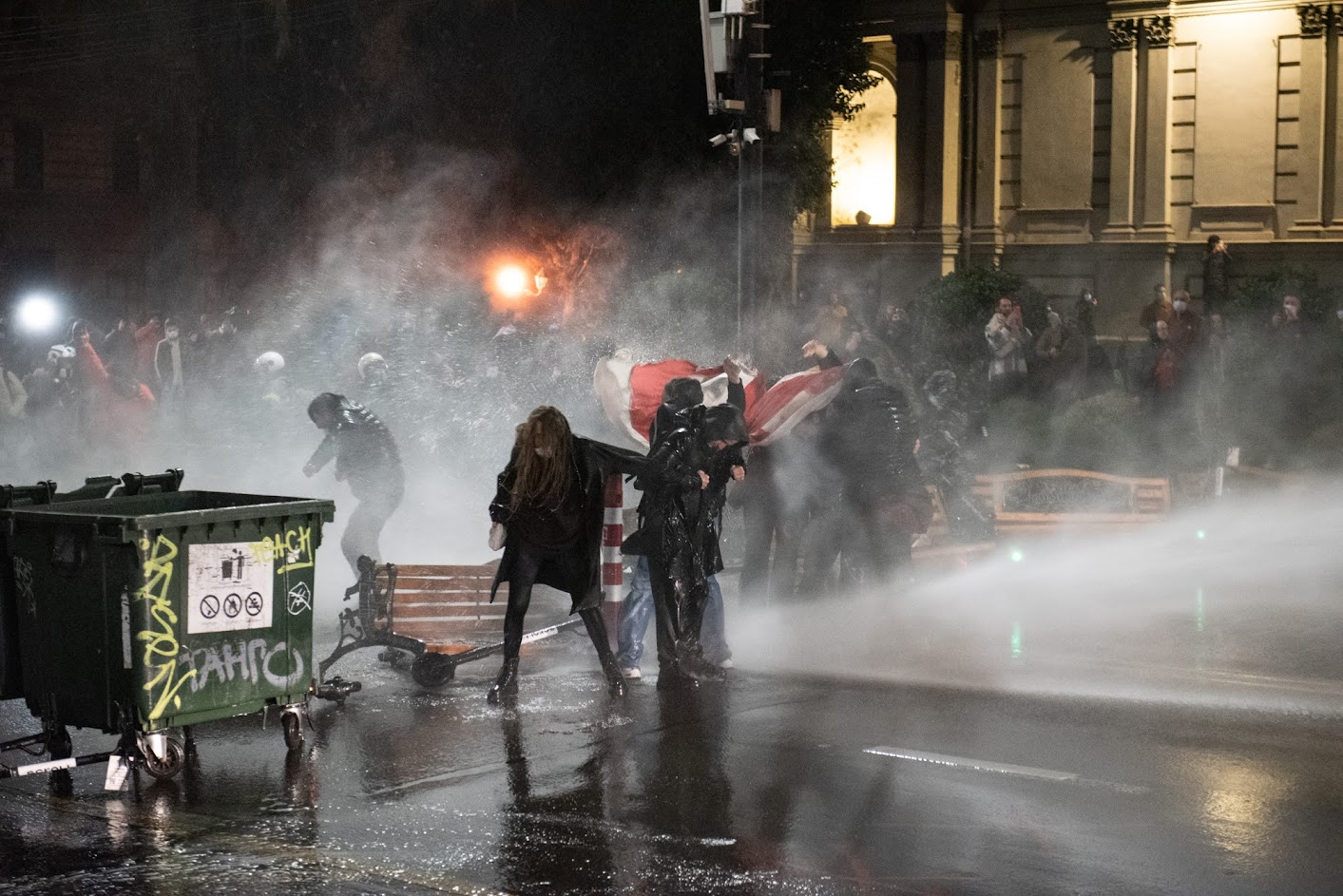
Gota Chanturia, the director of the Georgian Coalition for Education and a researcher into humour in education, affirms the effectiveness of humour as a tool for political change.
Chanturia gives the example of a TV broadcast by Beka Korshia on the subject of long-delayed renovation works on Tsereteli Avenue in Tbilisi, where he mocked politicians’ pronouncements on the subject with the invented phrase ‘Gutentracken standards’; a play on the Georgian word ‘traki’, or ‘arse’.
‘If Beka Korshia had made a news report about corruption in road construction systems, his usual viewers would have watched it, and the opposing side would have dismissed it as nonsense’, says Chanturia. ‘But presented in a humorous way, it got much more attention, and the issue was relatable to everyone, so it didn’t matter which side you were on.’
Finding such points of connection in humour can be powerful, with American comedian George Carlin writing in 2009 that people’s ‘defences are down’ when they laugh.
‘They are completely open, completely themselves when that message hits the brain and the laugh begins. That’s when new ideas can be implanted. If a new idea slips in at that moment, it has a chance to grow’, wrote Carlin.
The recent evolution of Georgian stand-up
While Georgia’s current stand-up scene is relatively new, humour has long been used to expose systemic issues and hold the country’s powerful to account.
In Georgia today, two prominent stand-up communities dominate the stage: Stand-Up Tbilisi and Stand-Up Georgia.
Stand-Up Tbilisi debuted in 2018, beginning as a small English-language event aimed at entertaining a circle of friends. While the event gained traction in local bars, the use of English limited the extent to which local topics could be explored in depth, leading them to focus on universal stories with broad appeal.
A shift to Georgian allowed their material to become more pointed and tailored to Georgia’s socio-political landscape, boosting their popularity. Since the Georgian Government’s introduction of the foreign agent law in 2023, almost every video posted by Stand-Up Tbilisi reflects local political events and criticises the Georgian Government.
In contrast, Stand-Up Georgia’s public output has remained politically neutral. Most of its comedians have avoided direct political commentary, except for Sandro Tskhadadze, who has stood out for his clear anti-government stance.
‘Since politics affects everyone and everything, I try to ensure that a part of my stand-up routine directly addresses political issues. However, given my broader stand-up style, the entire 10-15 minute segment ultimately ends up falling under a political umbrella’, says Tskhadadze.
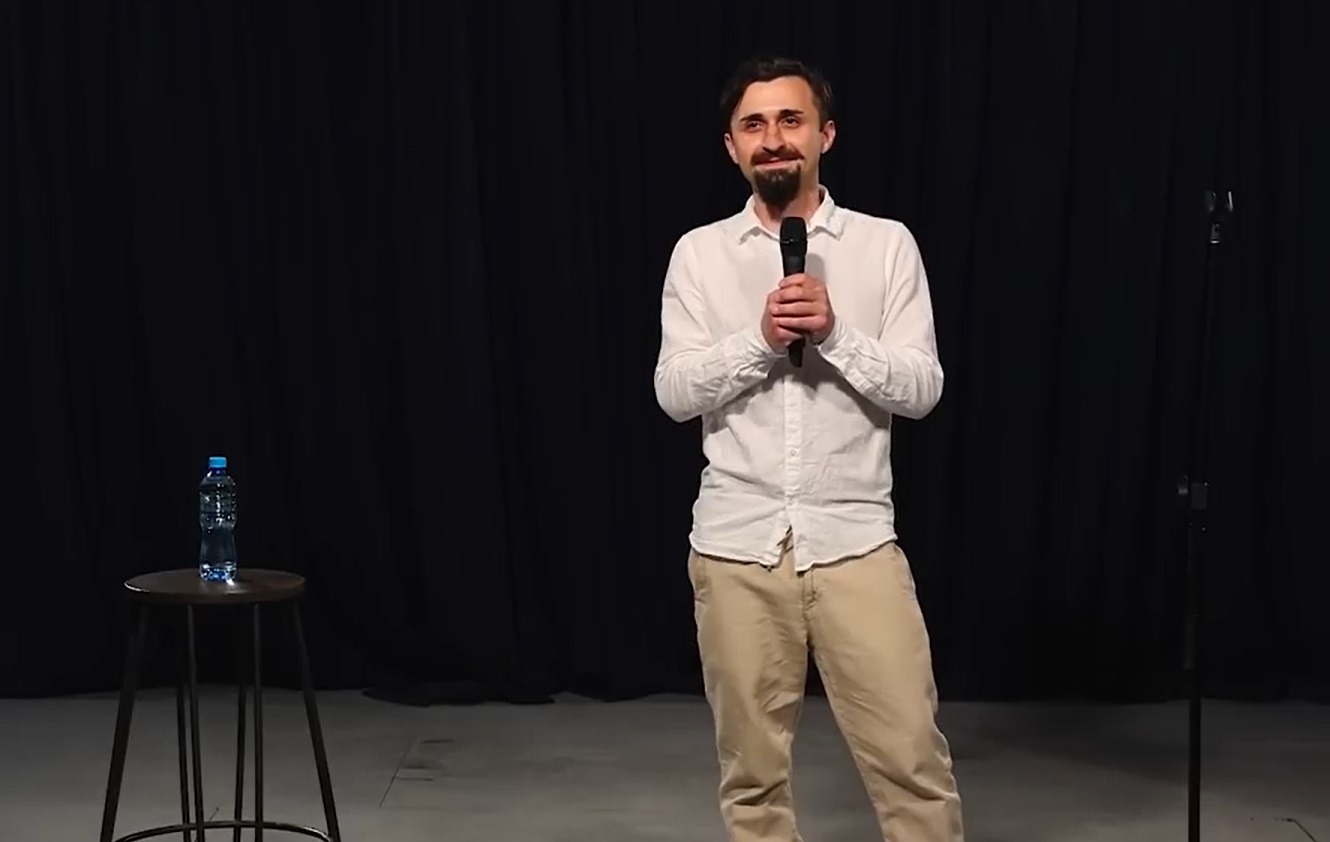
‘It’s very important to talk about politics because, while it’s a show and entertainment, it’s also a part of art. It would feel very out of place and empty if it didn’t address politics and similar processes’, explains Salome Zhvania, a frequent visitor to Stand-Up Tbilisi.
Another audience member, Sopo Elizbarashvili, argues that it is crucial for comedians to address political themes in a country like Georgia, where politics and political divides ‘are involved in everything’.
A number of comedians suggest that discussions of politics are in fact integral to modern Georgian stand-up. Ana Sikharulidze, a comedian from Tbilisi Stand-up, says that her audiences not only like political jokes but even demand them, while Onise Okriashvili believes that political discussions are in fact the reason why stand-up has gained popularity in the country.
‘Stand-ups don’t thrive in very happy countries’, says Okriashvili. ‘For example, they don’t have much stand-up in Finland because they’re ranked second in the happiness index. But here, we’ve never had a problem finding material to talk about because we encounter new absurdities every day, new challenges, and that’s why it has a very bright future here.’
The impact of comedy
Many Georgian comedians see their work as carrying significant responsibility, with Okriashvili noting that there’s moral principle involved in his approach to his jokes.
‘The challenge is to say something painful without being insulting, to make a joke that still stings’, says Okriashvili. ‘My main goal is to criticise a political figure, political group, or social group with keen observation, not with insults or vulgarity.’
Ana Sikharulidze similarly notes that it is important for her to have ‘something meaningful to say’.
‘I try not to write anything when I’m very angry because my jokes need me to be in a clear state of mind, to look at things with a cold perspective, and not be emotional’, she says. ‘It might come out more sincere at that moment, but you can’t just start cursing; I don’t see this as a platform for that.’
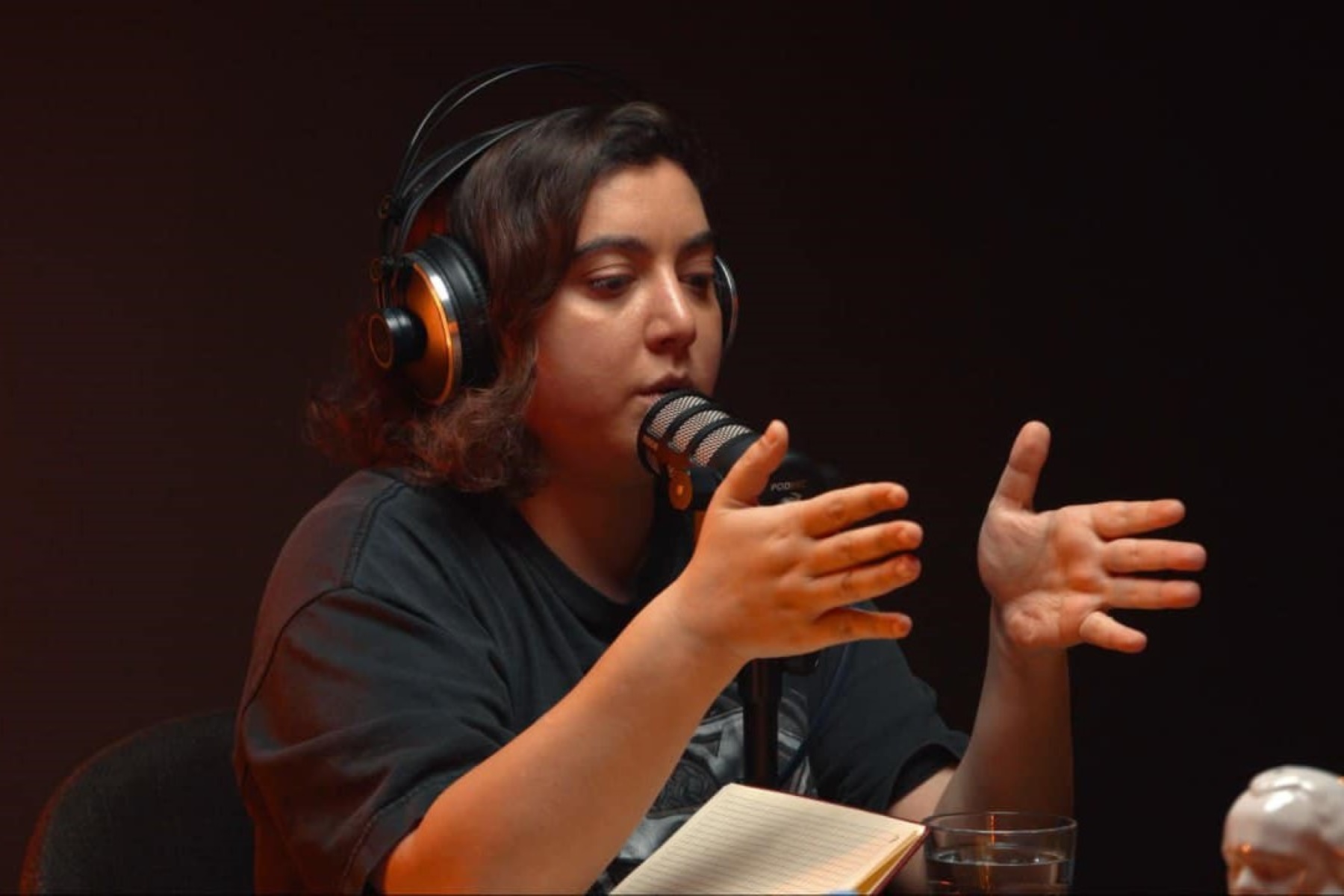
But some suggest that humour can in fact be counterproductive as a political tool, giving people a sense of emotional relief while not addressing the factors causing their distress.
Levan Berdzenishvili, an author, philologist, and the founder of the Republican Party of Georgia, says that the gravity and significance of a topic can be undermined by jokes.
‘Humour is a defensive weapon, not a weapon to attack, at least in politics’, says Berdzenishvili, adding that using humour to criticise the government can make it seem relatable, less serious, or even likeable.
Berdzenishvili recalls the Georgian TV show Dardubala, which in the 1990s presented politicians as cartoon characters. He recalls the depiction of then-president Eduard Shevardnadze as lovable rather than hateful, softening the criticism levelled against him.
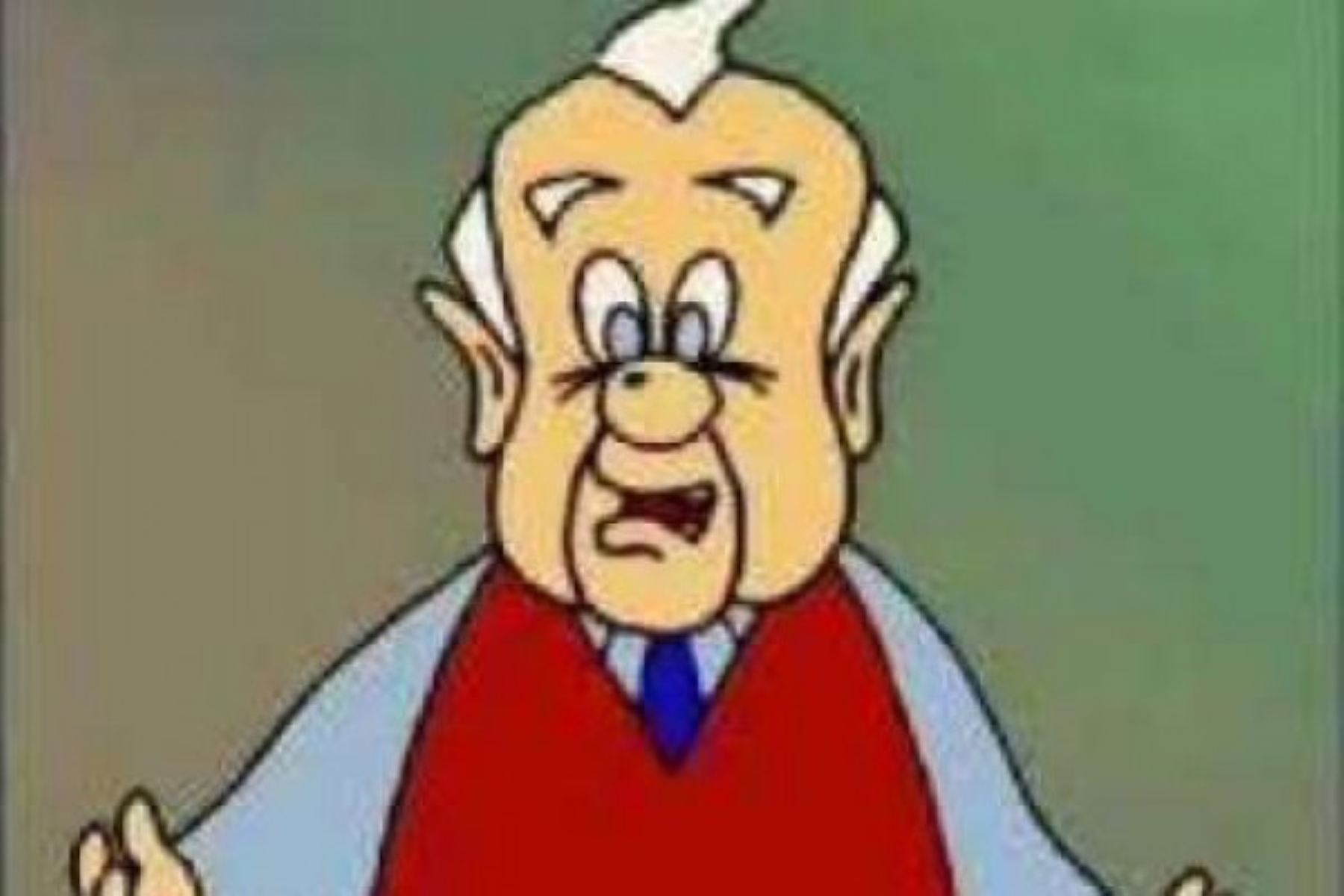
‘Laughter is good, but not humour-induced laughter’, says Berdzenishvili. ‘What is needed is satire, ruthless satire, which will be a very good weapon. Humour is a defensive weapon and you can use it when you are under attack, but it’s impossible to use humour in the fight against the government and authorities.’
This approach to challenging circumstances can be seen as, to some extent, characteristically Georgian, and as a way to navigate absurdity and tragedy while maintaining optimism.
Humour was, for example, important to anti-government protests in both 2023 and 2024, with comical signs and graffiti, puns on the names of officials, and teenagers raving to sonic cannons becoming critical to the spirit of defiance; a determination to find joy in the circumstances, no matter what.
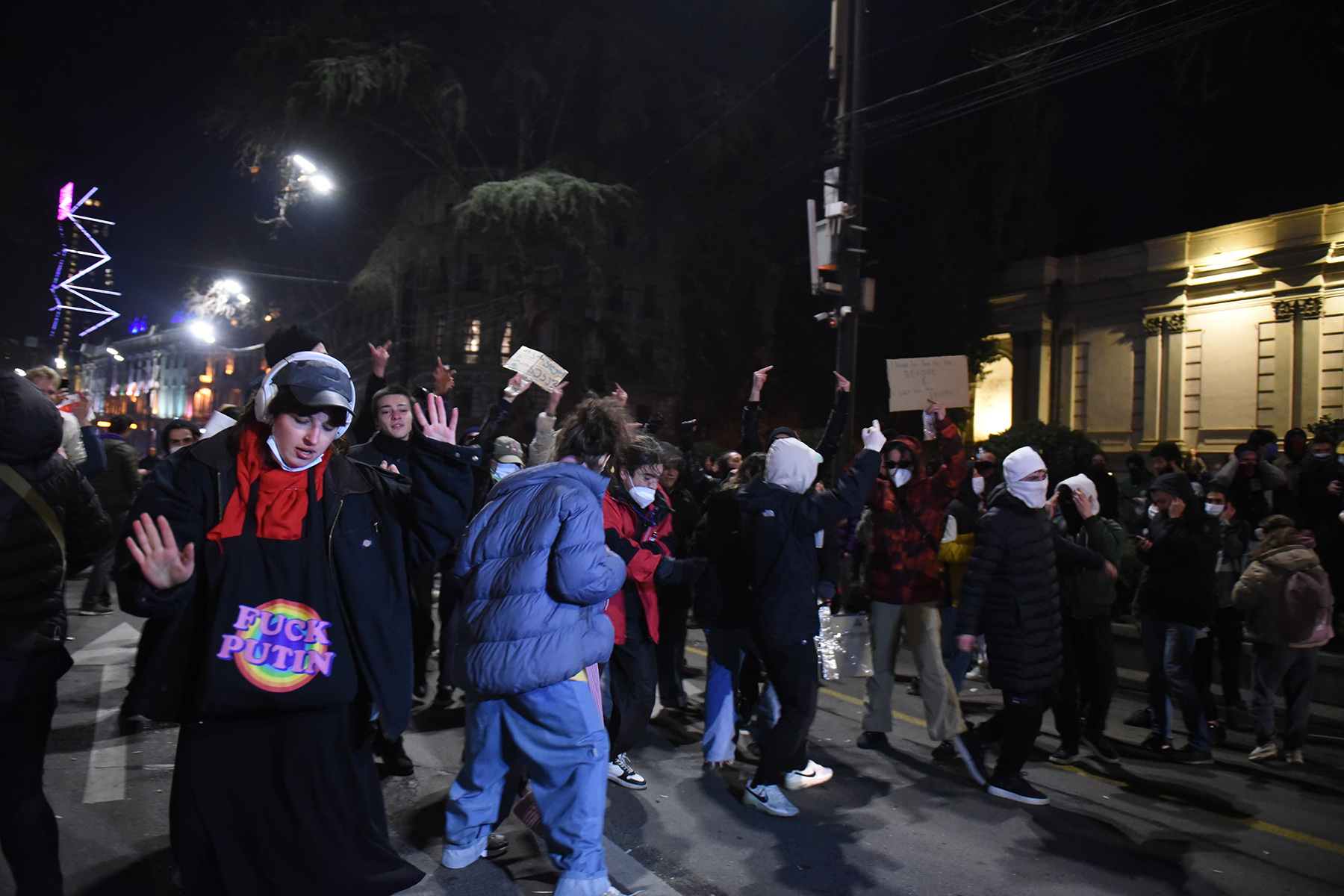
‘A wise man once said that laughter is better than tears, especially if both are in vain’, says Korshia.
Lessons from the neighbourhood
The region’s history has shown that stand-up comedy can have an impact on politics, albeit variable in how it affects both the political landscape and the performers in question.
While comedians like Belarusian Idrak Mirzalizade face oppression and arrest for their political humour, others, like Volodymyr Zelensky, have had a different trajectory. Zelensky, who began his career as a comedian, mastered the art of making the masses laugh and ultimately progressed to become the president of Ukraine.
‘Zelensky’s example is an excellent one’, notes journalist Beka Korshia. ‘Zelensky comes from KVN [a Russian and formerly Soviet comedy television show] and was a comedian, a person who entertained all of Ukraine. He starred in a series called “Servant of the People”, where he played the president. This series, which was satirical and humorous in nature, had a significant impact on society and political life overall because the person who played the president eventually became the president.’
‘Today, we see how, thanks to him, the Russian empire is collapsing. This is the power of humour in the end’, he says.
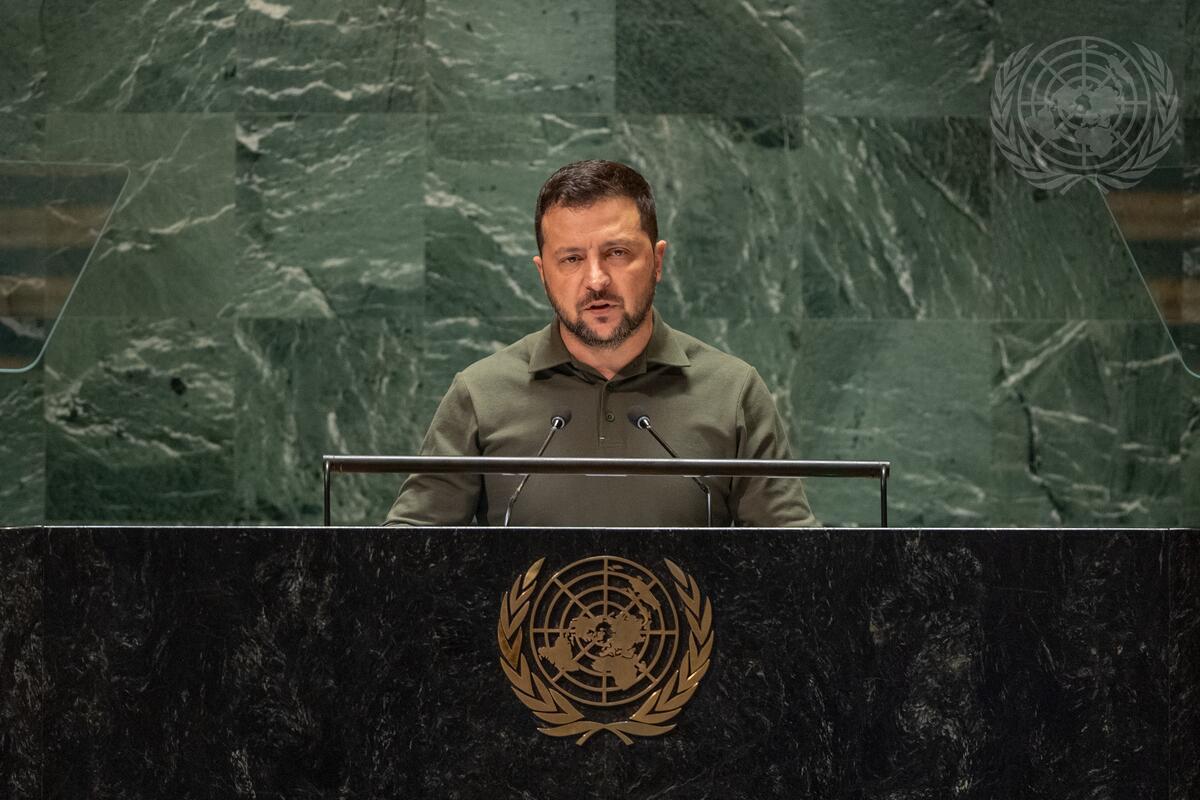
But other examples of the interplay between politics and humour in the region are less hopeful.
Historian Ruslan Baramidze, who studied migration from Russia to the South Caucasus and Europe after the full-scale invasion of Ukraine, divides Russian control of comedy into two parts: before and after the invasion. Before the war, he says, censorship existed but comedians still joked about diverse topics.
‘Even on major channels [in Russia], stand-up performers would make coming-out statements during their performances, discussing their sexual orientation and making jokes about it, and this would be aired on television’, says Baramidze. ‘In the current situation, we know that this is considered a crime, and a person can be imprisoned for such statements.’
He adds that at present, the only topics in Russian stand-up that the state will accept are the degradation of the West and the incompetence of Western leaders, the latter with an emphasis on how strong Putin is. For those comedians who remain dedicated to their freedom of speech, they were left with only two options: flee the country, or face charges.
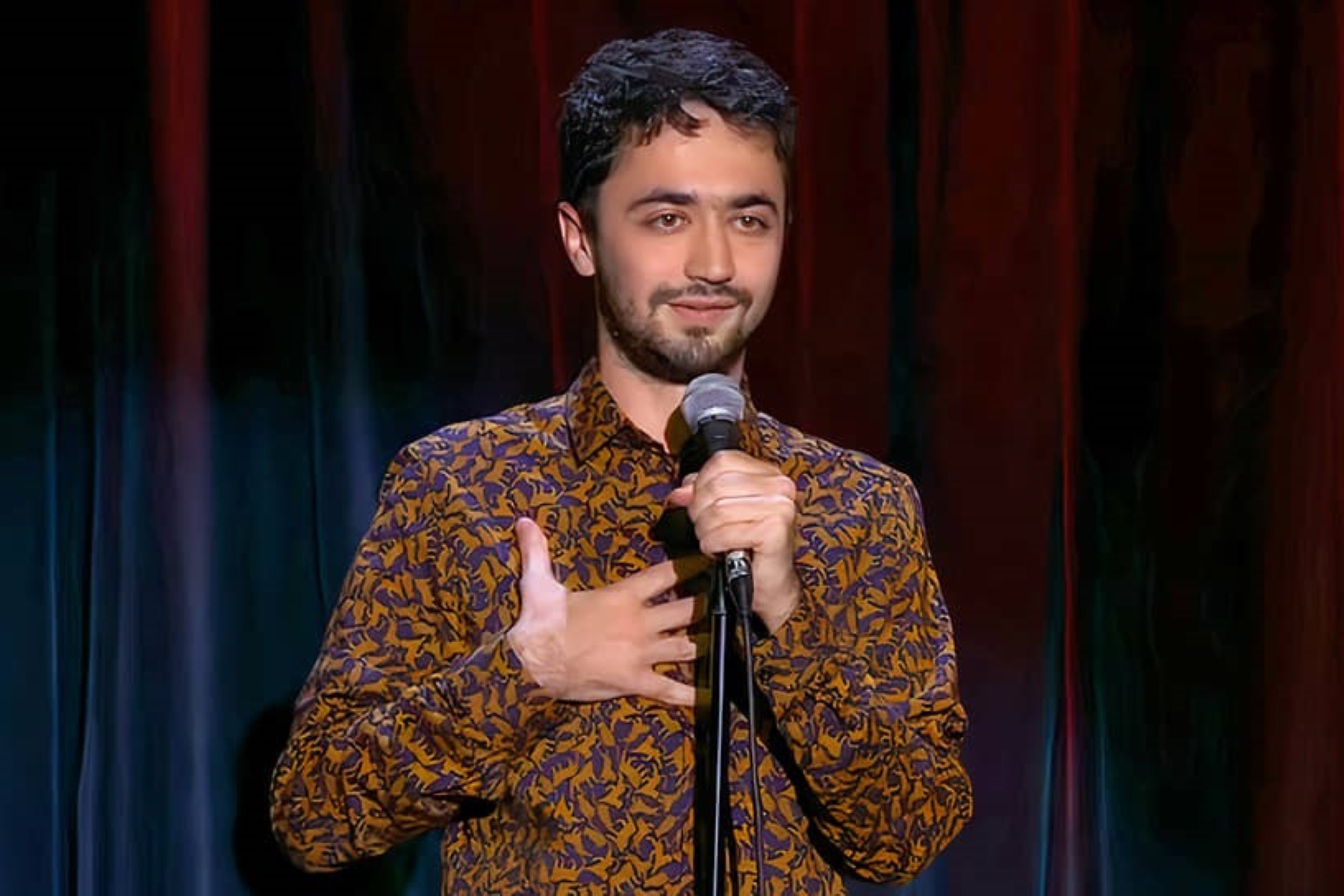
‘On the one hand there are those who support Putin, on the other, there are those who can read, write, and reach logical conclusions’, turned out to be not just a joke but a punishable offence for Russian stand-up comedian Alexander Dolgopolov.
Dolgopolov fled the country after police claimed that that stand-up set had broken a law on ‘offending the feelings of believers’ for its mentions of Christianity; a charge that Dolgopolov, now residing in Berlin, saw as self-evidently standing in for his political criticism.
‘I was always aware that this could happen, and I was always afraid’, he told RFE/RL. ‘But what distinguishes a free person from a slave is that he boldly faces his fears and does not allow them to dictate his lifestyle.’
Georgia looks north
Fears are rising that the Georgian government’s attitude towards freedom of speech and expression is following that of Russia. In 2024, despite two months of mass protests, the ruling party introduced a law on ‘foreign agents’ that appears closely modelled on a Russian law used to suppress freedom of speech and civil society.
Shortly afterwards, the government began pushing through a law against ‘LGBT propaganda’, also similar to one used to stifle critical voices in Russia, with the party’s leaders additionally suggesting that they might soon introduce their own law on offending the feelings of religious believers.
Media, civil society, and ordinary members of the public have expressed concern that such laws will be used to punish those who speak out against the government.

Georgian stand-up comedy could be an early target, as a popular and influential platform for social and political criticism. But Georgian comedians say they are not planning on giving up.
Stand-Up Georgia’s Sandro Tskhadadze acknowledges that there is a potential that comedians might be censored or attacked, but suggests that a broader and more diverse stand-up scene might be part of the answer.
‘More stand-up comedians mean more independent opinions and delivering reality in a positive but true form’, he says.
Onise Okriashvili adds that he has no intention towards self-preservation in his comedy.
‘I don’t usually worry too much about it because if I think about the consequences of a good joke, this somehow makes my art lose its sacredness. So I prefer to follow the principle of “whatever happens, happens” ’, he says. ‘If there are consequences that threaten me individually, I wouldn’t be the first or the last in Georgian history to face that. Unfortunately, every writer, director, comedian, or artist has faced this path, having to decide how much truth they intend to speak.’
‘If I decide to tell the whole truth, as I see it, it will have consequences, either now or later’, says Okriashvili. ‘I never hold back; I always try to say what needs to be said.’


